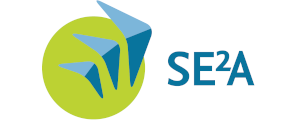
The goal of this project is to accelerate the turbomachinery design process by developing
fast and accurate AI-enhanced prediction methods. Derived from this goal, the two objectives of this project are to provide an AI-enhanced meanline-based prediction tool, and an AI-enhanced 3D-based flow-field prediction tool, which improve different stages of the compressor design process.
Based on current technological trends in the field of sustainable aircraft propulsion, which include a wide array of possible system architectures, it is expected that unsteady effects, baroclinic effects due to cooling and humidification, and secondary flow will be of increasing importance.
The machine learning models will, thus, be trained using time-averaged unsteady simulation data of representative adiabatic and cooled compressor test cases as their ground truth, which will be selected from a concurrent SE²A project regarding fuel cell-based aircraft propulsion. The meanline-based prediction tool will use conventional meanline predictions as input whereas the 3D-based flow-field prediction tool will use conventional 3D steady-state simulation data. Both machine-learning models will then enhance the conventionally obtained solutions based on the learnt relationships between input and ground truth.
The overarching goal of this project is to accelerate the turbomachinery design process by developing
fast and accurate AI-enhanced prediction methods. The methods will improve different stages of the design process. The two objectives of this project are, thus, to provide 1) an AI-enhanced meanline-based prediction tool, and 2) an AI-enhanced 3D-based flow-field prediction tool, which accurately predict time-averaged unsteady effects, as well as the effect of secondary flow and convective cooling.
In order to fulfil the objectives stated above, conventional prediction methods (meanline and 3D RANS) will be used as a basis. Machine-learning (ML) models will be trained using time-averaged URANS data, in order to obtain highly accurate results from conventional methods using the newly obtained ML-model enhancement. For validation purposes, the application of new methods will then be demonstrated in an exemplary design process.
Institute of Turbomachinery and Fluid Dynamics (TFD)
Leibniz University Hannover